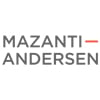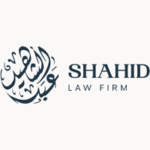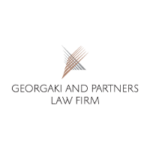-
What are the key rules/laws relevant to M&A and who are the key regulatory authorities?
Sources of law: The most relevant sources of law for M&A in Luxembourg are the law of 10 August 1915 on commercial companies, as amended (the 1915 Law), the Luxembourg Commercial Code, the Luxembourg Civil Code and the law of 19 December 2002 on the Trade and Company Register and companies and on bookkeeping and annual accounts of companies. For publicly traded companies, specific laws apply which are not compiled in existing codes, amongst which the most notable are the law of 19 May 2006 implementing Directive 2004/25/EC of the European Parliament and of the Council of 21 April 2004 on takeover bids (the Takeover Law), the law of 11 January 2008 on transparency requirements in relation to information about issuers whose securities are admitted to trading on regulated market, as amended, the law of 24 My 2011 on the exercise of certain shareholders’ rights at general meetings of listed companies and the law of 21 July 2012 on mandatory squeeze-out and sell-out of securities of publicly traded companies (the Squeeze-Out and Sell-Out Law). In addition, there may be specific legislation to be considered depending on the sector of activity of the Luxembourg target and especially in the context of acquisitions of regulated entities (such as the law of 5 April 1993 law on financial sector, the law of 10 November 2009 on payment services or the law of 12 July 2013 on alternative investment fund managers). Domestic mergers and cross-border mergers with EU and non-EU entities are mainly governed by the 1915 Law which implemented the EU Merger Directive 2017/1132, and which has recently been updated to transpose the European Mobility Directive 2019/2021, with the changes with respect to the latter being effective as of 1st April 2025.
Foreign investments: Regarding foreign investments, Luxembourg is historically an open market without a general system of foreign investment control or governmental consent requirements for foreign investors. On 13 June 2023, the Luxembourg Parliament passed a law implementing Regulation (EU) 2019/452 of the European Parliament and of the Council of 19 March 2019 establishing a framework for the screening of foreign direct investments into the Union (the FDI Law). The FDI Law entered into force on 1 September 2023, introducing a national mechanism for the screening of foreign investments from outside the European Economic Area made through Luxembourg entities conducting certain activities in sectors regarded as critical (e.g. energy, transport, water, health, communications, media etc.) on the Luxembourg territory and excluding portfolio investments, being investments which are solely financial and without any element of control being exercised. The FDI Law has a significant impact on the timing and proceedings of in-scope M&A transactions; however, to the extent that a transaction does not relate to one of the sectors identified as critical in the FDI Law or is solely a financial investment, it should not be of relevance.
The Foreign Subsidies Regulation also took effect in the EU in 2023. The Foreign Subsidies Regulation seeks to ensure a level playing field for all companies operating in the market in the EU, by targeting any undertaking that has received a financial contribution from a non-EU Member State (a foreign subsidy) which is liable to improve such undertaking’s competitive position and actually or potentially negatively affect competition in the internal market. The European Commission may perform a ‘balancing test’ to weigh the subsidy’s positive effects against its distortive impact. The Foreign Subsidies Regulation introduces three procedures:
- A notification-based procedure, where the acquired company, one of the merging parties or the joint venture generates an EU turnover of at least EUR 500 million and the parties received foreign subsidies of more than EUR 50 million in the previous three years;
- A notification-based procedure to investigate bids in public procurement procedures, where the estimated value of such contract is at least EUR 250 million and the bid involves a foreign subsidy of at least EUR 4 million per third country in the previous three years; and
- An ex officio procedure where the Commission can start a review on its own initiative for any other market situations.
Merger control: Luxembourg had until now chosen not to put in place any merger control on a national level and the Luxembourg competition authority had only the power to intervene after completion of a transaction should it consider there to be anti-competitive practices or an abuse of a dominant position as a result of the relevant acquisition. This is set to change as a bill of law (no. 8296) setting up a merger control regime in Luxembourg was submitted to Parliament on 23 August 2023. It is not possible to provide an estimated timetable for the adoption of the Bill, as it remains in the early stages of the legislative process.
Key regulatory authority: The main regulatory authority is the Commission de Surveillance du Secteur Financier (CSSF), responsible for the prudential supervision and supervision of the markets for the purposes of ensuring the safety and soundness of the financial sector.
-
What is the current state of the market?
Luxembourg is the second-largest investment funds center in Europe behind the United States. Private equity firms are the main players on the Luxembourg market, but M&A transactions can also be performed by small, medium and large corporations, industry groups, banks, family offices, etc.
Luxembourg is a specific market as it is a throughout jurisdiction, i.e. a jurisdiction through which investments of private equity or industrial groups in foreign targets are made via a Luxembourg holding entity. Therefore, the majority of the work consists of cross border transactions with a target company operating in another jurisdiction. Nevertheless, we have noted in recent years some notable transactions involving local target companies based in Luxembourg, most often related to the financial sector, such as, for example, the acquisition by Deutsche Börse of all the outstanding shares of the leading digitized fund distribution platform FundsDLT, the acquisition by Hootsuite of Talkwalker, a Luxembourg-based company known for its AI-powered social listening and analytics solutions and the acquisition by Cinven of a majority stake in Alter Domus. Moreover, major M&A transactions can be initiated by Luxembourg operational companies, such as the recent acquisition of Intelsat by the Luxembourg satellite communication company SES (the completion of which being still subject to regulatory clearance).
-
Which market sectors have been particularly active recently?
Beyond the investment fund industry which is the major industry in Luxembourg, the banking sector as well as the sectors of information and communication technology (in particular with the presence of space companies and research labs) have been particularly active recently.
-
What do you believe will be the three most significant factors influencing M&A activity over the next 2 years?
M&A activity in Luxembourg over the next 2 years will be heavily influenced by the geopolitical situation, especially with respect to Ukraine and the Middle-East.
Ancillary factors such as evolution of interest rates, energy prices, international sanctions, potential increase/ of international customs taxes, etc. will also play an important role.
More recently, the M&A activity has started to be influenced by the growing importance of ESG factors.
-
What are the key means of effecting the acquisition of a publicly traded company?
Acquisition of a Luxembourg publicly traded company is most frequently implemented by means of voluntary or mandatory takeover bid, with a consideration either in cash or in securities, or through a combination of both. It is also possible to acquire securities of a Luxembourg publicly traded company off-market to the extent the threshold triggering the obligation to make a mandatory takeover bid is not crossed.
Indeed, in case a person, acting alone or in concert, reaches the 33 1/3% threshold in share capital or voting rights of a target listed on the Luxembourg Stock Exchange, it will be compelled to launch a mandatory tender offer on all the shares of the target. In such a case, the price offered by the bidder, or by the persons acting in concert with the bidder, must be at least equal to the highest price the bidder has paid over the last twelve months for the same securities. If, following a mandatory tender offer, the bidder reaches the 95% threshold in share capital and voting rights, it can initiate a squeeze-out (subject to a fair price, under the same form as the offer consideration or under the form of a cash consideration, with an option for the holder of securities for the price to be paid in cash).
A Luxembourg publicly traded company may also be acquired through a merger, which regime is governed by the 1915 Law. Such a mean of acquisition is however less common.
-
What information relating to a target company is publicly available and to what extent is a target company obliged to disclose diligence related information to a potential acquirer?
For all companies, the following information is publicly available on the website of the Trade and Companies Register ( Registre de Commerce et des Sociétés, RCS): trade name of the entity, registration number, place of registered office, legal form, NACE code, registration date. Some documents can be freely downloaded, such as the approved annual accounts of the previous years, the latest consolidated version of the articles of association, the deeds passed in front of a Luxembourg notary (including for share capital increase, share capital decrease, merger, etc). It is possible to order from the RCS an RCS extract of the company (it being noted that for Luxembourg sociétés à responsabilité limitée, the name of the shareholders and their shareholding in the company is publicly disclosed on such RCS extract) and a certificate on the existence or not of insolvency proceedings. These documents are in French. The existence of an ultimate beneficial owner can also be checked on the Registre des Bénéficiaires Effectifs (RBE), which access is limited by law to certain categories of persons.
For listed companies, a large amount of information shall be made available on the company’s website, including but not limited to the annual financial reports to be made available to the public for 10 years, the quarterly financial reports, the interim management statements. This information is usually available under the tabs “Investor relations”, “Shareholders’ meetings” or “Financial information”.
Information may also be available in the OAM (official appointed mechanism) operated by the Luxembourg Stock Market and accessible via its website.
There is no obligation by law for a company to disclose diligence related information to a potential acquirer.
-
To what level of detail is due diligence customarily undertaken?
In case of an acquisition of a Luxembourg-based operational company, the transaction would be subject to a due diligence investigation prior to signing covering all aspects, i.e. business, legal, tax, finance, insurance plus other specific aspects in relation to the target. However, the vast majority of private M&A transactions in Luxembourg relate to foreign companies being sold/acquired through a Luxembourg holding company. In such a case, the due diligence investigation for the Luxembourg part is often limited to corporate (in particular title to shares), finance and tax aspects.
-
What are the key decision-making bodies within a target company and what approval rights do shareholders have?
The key decision-making bodies of a company varies depending on the legal form of the target company and of the type of contemplated M&A transaction. However, as a general principle, and unless the company’s articles of association state otherwise, the management body of the company has the power to carry out all useful and necessary acts to achieve the object of the company, save for the powers reserved to the general meeting of shareholders by law.
Generally, in case of sale of shares of a private company, the shareholders themselves shall decide upon the sale of their stake in the company. Potential additional required corporate approvals must be assessed on a case-by-case basis. In a Luxembourg société à responsabilité limitée, being the most commonly used legal form in Luxembourg, the shareholders representing more than 75% of the company’s share capital (which threshold can be lowered to 50% in the company’s articles of association) shall pre-approve any third-party prior to the acquisition of company’s shares. In case of refusal, the shares of the selling shareholder must be repurchased by either the other shareholders or any other person appointed by them, or by the company.
In case of a merger or a contribution in kind (apport en nature), the approval of the transaction is of the remit of the extraordinary general meeting of shareholders to be held in front of a Luxembourg notary.
In case of sale of its assets by the target company, usually the management body will decide upon the sale of assets (but other corporate bodies such as the shareholders’ general meeting may be required to participate to the decision making process if such possibility is foreseen in the articles of association of the company ).
With respect to publicly traded companies, the key decision-making body in case of M&A transaction (including in case of hostile takeover) is the management of the company, which should take any necessary or useful actions to perform the M&A transaction within the limits provided by law and by the company’s articles of association, and in line with the company’s corporate object. In case the management intends to use anti-takeover measures (except for seeking alternative bids), it will have to obtain prior authorization of the shareholders at a general meeting if the latter opted in.
-
What are the duties of the directors and controlling shareholders of a target company?
By virtue of their mandate, directors or managers of a Luxembourg company shall act competently and in good faith. Their civil liability could be engaged in the event of a mismanagement or in the event of a breach of the provisions of the law or the company’s articles of association.
They must also act in the company’s corporate interest. The notion of corporate interest is not expressly defined under Luxembourg law but is generally interpreted as being separate from the interests of the shareholders of the company. In the absence of a statutory definition, the corporate interest is analyzed on a case-by-case basis. While the interest of the shareholders remain relevant, the interests of a larger group of stakeholders such as employees or even creditors may also be considered.
Directors or managers of Luxembourg companies can also be held criminally liable for, inter alia, abuse of corporate assets, misuse of powers or votes, failure to convene a general meeting, offences relating to the company’s balance sheets, offences to the company’s share capital and fraudulent bankruptcy.
Luxembourg law does not impose any specific duties upon controlling shareholders in with the context of M&A transactions.
-
Do employees/other stakeholders have any specific approval, consultation or other rights?
Employees
Any company with 15 or more employees (over the previous 12 months) must set up a staff delegation. Staff delegates are elected from among the company’s employees by the employees. The size of the staff delegation varies depending on the number of employees
In the case of a business transfer (i.e., transfer of undertaking, business, or part of business, provided that the transferred entity remains a stable economic unit), all rights and obligations attached to existing employment contracts are automatically transferred to the buyer. A business transfer is not a valid ground for dismissing an employee. Neither the employees nor the staff delegation, if applicable, can object to or refuse the transfer.
The transferor shall inform, by way of notification, the transferee of all rights and obligations transferred to them, and a copy of this notification shall be sent to the Labour and Mines Inspectorate (“Inspection du travail et des mines”). Both the transferor and the transferee must inform and consult their staff delegation (or inform their employees directly and individually in writing if there is no staff delegation) about the contemplated transfer (i.e., date scheduled for the transfer, reasons for the transfer, legal, economic, and social consequences for employees, measures envisaged for the employees). The staff delegation (or the employees as applicable) must be notified in good time and in any case before the transfer takes place.
However, there is no transfer of business when the legal identity of the employer remains the same (in case of a share deal typically). Thus, a change in the management or organs of a company or a change in the shareholding structure does not affect the company’s status as employer and does not give rise to the application of the aforesaid legal rules and principles as the employer remains the same.
Creditors
Luxembourg law does not provide for any specific approval rights for the creditors in case of sale of a private or public company. However, the contractual agreements in force may provide for specific approval or consent rights for creditors. The existence of such rights is usually assessed in the course of the due diligence process, and the obtention of such approval or consent treated as a condition precedent or preliminary step to the completion of the sale.
In the case of a merger, creditors of the merging companies whose claims predate the publication of the merger plan can request the Luxembourg judge to constitute adequate securities for due or undue claims, if they can demonstrate that the merger endangers their ability to exercise their rights. The judge shall reject the request if the creditor has adequate guarantees or if they are not necessary, given the financial state of the company post-merger. The company may dismiss the request by paying the creditor, even if the claim is due at a later date.
-
To what degree is conditionality an accepted market feature on acquisitions?
The Luxembourg market generally accepts conditionality on acquisitions.
The conditions precedent that are commonly seen in Luxembourg can be for legal reasons (obtaining the approval of the CSSF or the Commissariat aux Assurances (CAA) when the target is a regulated entity for example) or for contractual reasons (obtaining third-party approval for the transfer of loan agreements for example).
-
What steps can an acquirer of a target company take to secure deal exclusivity?
In order to secure deal exclusivity, the potential acquirer of a target can require the seller to enter into an exclusivity agreement. Exclusivity agreements are commonly seen in Luxembourg, whether or not governed by Luxembourg law. There are two main types of exclusivity agreement, either providing for a positive obligation of the seller to negotiate and discuss in good faith exclusively with specified designated persons (“lock-in”), either providing for a negative obligation of the seller to not negotiate or look for other potential third-party acquirers (“lock-out”). Before granting exclusivity, the seller will seek to ensure the seriousness of the acquirer and its commitment to the acquisition, and accordingly a particular attention would be given to the exclusivity framework. Typically, the seller will require evidence that the acquirer has the financial capacity for the acquisition, or will require an undertaking from the acquirer not to re-negotiate the agreed points of the term sheet. Usually, the exclusivity is given for a limited period of time and can give right to break-up fees in case the deal does not succeed. Break-up fees may be considered as a penalty clause (clause pénale) under Luxembourg civil law and the Luxembourg judges have the power by law to amend the break-up fee amount if it is manifestly disproportionate to the suffered loss (whether by reducing or increasing it).
-
What other deal protection and costs coverage mechanisms are most frequently used by acquirers?
In order to protect themselves against termination of negotiations at an advanced stage, acquirers can include break-up fees in the legal documentation (see question 12).
To cover any loss in value post-completion of the deal, it is also standard for acquirers to require the seller to give representations and warranties with respect to the target company, which in case of breach give right to indemnification of the acquirer. W&I insurances are very popular since several years. Acquirers can also use other mechanisms such as the leakage provision (in case the price is determined according to a locked-box mechanism) or the price adjustment (in case the price is determined on the basis of the completion accounts). More recently, a resurgence of earn-out clauses has been observed, which allow the acquirers to bridge any valuation gap and accordingly to protect themselves against any potential overevaluation of the target company.
-
Which forms of consideration are most commonly used?
Luxembourg offers an important flexibility to the parties. Beyond the cash consideration, it is very common to see cashless transactions with the use of considerations in kind (for example via the allocation of shares held in another entity or the transfer of a receivable held against a third-party entity) or mechanisms of deferred payment of the purchase price structured via for instance the setting up of a vendor loan note between the acquirer, as borrower, and the seller, as lender, to be repaid or converted into equity (as a result of which the seller will become shareholder of the acquirer) at a later stage.
-
At what ownership levels by an acquirer is public disclosure required (whether acquiring a target company as a whole or a minority stake)?
There is no mandatory public disclosure by law for private companies, with the nuance however that for Luxembourg société à responsabilité limitée, the name and shareholding percentage of any shareholder (notwithstanding the ownership level) is publicly disclosed on the RCS extract of the company.
Luxembourg has also implemented the European rules with respect to the disclosure regime for beneficial owners, requiring any natural person who owns or controls, directly or indirectly, 25% or more in the share capital or voting rights of a private Luxembourg company to disclose it to the RBE. In case there is no natural person who can be identified as such, any manager natural person of the company will be declared as beneficial owner. The information published on the RBE is publicly available.
For publicly traded companies, the percentage of voting rights held after the sale or acquisition of shares must be disclosed by the holder of shares to the issuer when the following legal thresholds are crossed (whether upwards or downwards), the issuer publishing such information: 5%, 10%, 15%, 20%, 25%, 33 1/3 %, 50%, 66 2/3 %. The company’s articles of association can contain additional constraints in this respect (in particular with lower thresholds).
-
At what stage of negotiation is public disclosure required or customary?
For private deals, public disclosure is not required but it is customary for the parties to disclose the deal at signing (i.e. at the end of the negotiation process). Usually, the moment for disclosure of the deal is agreed upon between the parties in the confidentiality agreement.
For publicly traded companies, the Takeover Law provides that the decision to make a takeover bid must be made public by the bidder immediately following the bidder’s decision and the CSSF must be notified of such bid before that decision is made public.
For mergers, the merger is made public as soon as the draft terms of the merger are published with the RCS (which is a mandatory step in a merger process). Following implementation of the Mobility Directive 2019/2021 in Luxembourg law, in case of cross-border merger subject to the Mobility Directive special regime, under certain conditions, the management bodies of the merging companies are now required to communicate in advance to the shareholders and the (representative of) employees a report justifying the legal and economic aspects of the merger and notably outlining the implications for employees and the future business of the company.
-
Is there any maximum time period for negotiations or due diligence?
There is no maximum time period for negotiations or due diligence set by Luxembourg law. The parties are free to give the contractual frame they wish to the M&A process, which will vary depending on diverse factors such as the complexity of the transaction, especially in case the target operates internationally. Usually the maximum time period for negotiations or due diligence is set up in the legal documentation entered into between the parties (term sheet, investment agreements, confidentiality agreement, exclusivity agreement, etc.), and can subject to a long-stop date after which the parties agree that the negotiations or due diligence process shall end and that the initially envisaged M&A transaction will not occur.
-
Is there any maximum time period between announcement of a transaction and completion of a transaction?
For private deals, there is no obligation to announce a transaction, and there is no maximum time period between the signing of a share purchase agreement and the completion of the sale. The timing for completion is driven by the agreement of the parties, and often the time delay between signing and closing is due to the need of fulfillment of conditions precedent such as the obtention of administrative authorizations or the implementation of pre-restructuring steps. Usually the parties include long-stop date after which, in case of failure to fulfill the conditions precedent, the share purchase agreement is deemed null and void and the completion of the sale does not occur.
For publicly traded companies, the Luxembourg law of 19 May 2006 on takeover bids provides for a principle according to which the target company must not be hindered in the conduct of its affairs for longer than is reasonable in case of takeover bid on its securities. The law provides for a maximum period of six months from the date on which the decision to make the bid was made public to the end of the offer acceptance period (with possible derogations from the CSSF).
-
Are there any circumstances where a minimum price may be set for the shares in a target company?
For private deals, a minimum price for the shares in a target company can be set up in the contractual agreements in place between the existing shareholders, usually in the target company’s articles of association or in a shareholders’ agreement. As an example, the price of a sale of shares being subject to a right of first refusal of existing shareholders will be at least equal to the price first offered by the transferring shareholder to the existing shareholders.
For publicly traded companies, the price offered by the bidder, or by the persons acting in concert with the bidder, in the context of a mandatory tender offer must be at least equal to the highest price the bidder has paid over the last twelve months for the same securities.
In case of exercise of the squeeze-out right, the price offered must be fair and equitable, often determined by an independent expert.
-
Is it possible for target companies to provide financial assistance?
Financial assistance rules are applicable to public limited liability companies and provide that a company may not advance funds, make loans or provide security whether directly or indirectly, with a view to the acquisition of its shares by a third party. The financial assistance rules do not apply to Luxembourg private limited liability companies. However, a transaction which raises financial assistance concerns may also be difficult for a company to approve from a corporate interest perspective – therefore for private limited liability companies, even if not subject to financial assistance rules, this must be considered carefully. If a company which is subject to financial assistance rules directly (SA, SCA) takes an action in breach of the financial assistance rules, such action will be null and void. Breach of the financial assistance rules also triggers potential criminal and civil liability of the directors of the company. There is a ‘whitewash’ procedure available under Luxembourg law which can be followed if parties wish to proceed with a transaction notwithstanding that it constitutes financial assistance; however, such procedure is not commonly applied in practice.
-
Which governing law is customarily used on acquisitions?
The law governing share purchase agreements can be freely determined by the parties. In practice, given that Luxembourg is primarily a hub for holding companies and special purposes vehicles used for acquiring an entity in another jurisdiction (the Target) share purchase agreements and other transaction documents such as the shareholders’ agreement are usually governed by the law of the Target, or by any other law as agreed upon by the parties. In such case, the transaction documents are reviewed by the Luxembourg legal advisor as local counsel to ensure that their terms comply with the Luxembourg mandatory rules and transfer formalities.
-
What public-facing documentation must a buyer produce in connection with the acquisition of a listed company?
In Luxembourg, when acquiring a listed company, the bidder must produce several key public-facing documents to ensure transparency and compliance with regulatory requirements. The main documents (in case of non-hostile bid) are the following:
Announcement of the offer: the bidder must publicly announce its intention to make an offer. Usually the announcement is made through a press release or a formal public statement. It typically includes key details such as the offer price, the number of shares targeted, and the timeline for the offer.
Offer Document: this document is a more detailed document than the announcement of the offer, which provides comprehensive information about the offer, including, inter alia, the terms and conditions of the bid, the identity of the bidder, the consideration offered for each security or class of securities, the maximum and the minimum percentages or quantities of securities which the bidder undertakes to acquire, and the bidder’s intentions with regard to the future business of the target company and employment, the time period for acceptance of the bid (which cannot be less than 2 weeks or more than 10 weeks from the publication of the offer document). The offer document must be approved by the CSSF before being made public. The offer document may contain a fairness opinion from an independent expert regarding the offer price (such opinion being mandatory in case of mandatory takeover bid or squeeze-out bid).
Employee Information: when the offer document is made public, the management bodies of both the bidder and the target company, must communicate such offer document to the (representatives of the) employees, and must draw up and make public a document setting out its opinion on the bid, and the arguments on which that opinion is based. This includes likely repercussions on employment and location of the target company’s place of business.
-
What formalities are required in order to document a transfer of shares, including any local transfer taxes or duties?
The process for effecting the transfer of shares depends on the type of corporate entity involved and the form of shares. In Luxembourg public limited liability companies (sociétés anonymes), partnerships limited by shares (sociétés en commandite par actions) and private limited liability companies (sociétés à responsabilité limitée), shares are typically in registered form with ownership being recorded in a share register maintained at the registered office of the company. For private limited liability companies (sociétés à responsabilité limitée), the shareholders are also registered with the RCS and any change in ownership must be notified to and published with the RCS. Bearer shares are limited in application due to the requirements to deposit such bearer shares with a recognised depositary. Transfers of registered shares are generally recorded by way of private share transfer agreements and there is no requirement for such share transfers to be notarised. In private limited liability companies (sociétés à responsabilité limitée), share transfers to non-shareholders must first be approved by shareholders holding at least 75% of the shares of the company (which threshold can be lowered to 50% in the articles of association of the company). There is no such mandatory prior shareholder approval required by law for share transfers in other corporate entities. There are no transfer taxes (stamp duty or otherwise) payable on the sale of shares in a Luxembourg company.
-
Are hostile acquisitions a common feature?
Though permitted under Luxembourg law, hostile acquisitions of Luxembourg publicly traded companies are uncommon in practice.
-
What protections do directors of a target company have against a hostile approach?
Takeover bids targeting Luxembourg companies whose shares are listed and admitted to trading on a regulated market (within the meaning of MiFID II1) are subject, to the provisions and principles provided for by the Takeover Law. The Takeover Law includes, among others, a Board Neutrality Rule and a Breakthrough Rule (each term as defined below). As a general rule when adopting any measures, the board of directors must always act in the corporate interest of the Luxembourg target company.
Board Neutrality Rule
The Takeover Law allows Luxembourg companies to choose whether they wish to subject their board to neutrality in the context of a takeover bid. In this respect, the general meeting of shareholders of the Luxembourg company may resolve in accordance with the conditions applicable to amendments of the articles of association – even before a takeover – to prevent the board from adopting defensive measures against a takeover bid (the Board Neutrality Rule).
In application of the Board Neutrality Rule, the general meeting of shareholders may decide to require the board to submit for their prior approval during a takeover offer the adoption of any defensive action which may result in the frustration of the takeover bid. The opt-in to the Board Neutrality Rule is reversible. The decision to opt-in the Board Neutrality Rule must be notified to the CSSF, as well as to all supervisory authorities of the member states on whose regulated market(s) the Luxembourg target company’s shares are admitted to trading or to which such a request has been made.
Absent such decision by the general meeting to adopt the Board Neutrality Rule, the default position is that the board may adopt such defensive measures as are permitted by the 1915 Law and as it may deem appropriate.
If the general meeting of shareholders has opted-in to the Board Neutrality Rule, the board must obtain the prior approval of the general meeting of shareholders for any defensive measures which it wishes to implement, except for actions aimed at triggering a competing bid.
Breakthrough Rule
The Takeover Law provides for an optional rule according to which any restrictions on the transfer of securities or restrictions on voting rights provided for in the articles of association or in contractual agreements of the Luxembourg target company shall not apply during the time allowed for acceptance of the bid (the Breakthrough Rule). Luxembourg companies are allowed to decide whether to voluntarily opt-in to this rule.
The decision to opt-in to the Breakthrough Rule must be taken by the general meeting resolving in accordance with the conditions applicable to amendments of the articles of association. The opt-in to the Breakthrough Rule is reversible. The decision to opt-in the Breakthrough Rule must be notified to the CSSF, as well as to all supervisory authorities of member states on whose regulated market(s) the Luxembourg target company’s shares are admitted to trading or to which such a request has been made.
The timeframe for which the Breakthrough Rule is effective corresponds to that for acceptance of the bid. However, this period may be reduced or increased by the CSSF through a specifically reasoned decision.
In addition to the aforementioned measures set out in the Takeover Law, directors have an arsenal of pre- and post-bid defensive measures that can be undertaken pursuant to the 1915 Law, provided that such measures are in the corporate interest of the company. The following list includes a high-level and non-exhaustive list of certain defensive measures:
- using the authorised share capital of the target without reserve to the preferential subscription right of current shareholders to dilute a hostile raider by issuing shares or convertible instruments;
- providing for enhanced quorums and majority requirements for certain key control decisions;
- providing for specific board nomination rights for certain shareholders and ensuring board majority is protected;
- regrouping voting rights and creating shareholder blocks by way of agreements or incorporation of a holding company to present a unified front to a hostile raider;
- using leveraged debt to recapitalize the target which may render the balance sheet less attractive to a hostile raider;
- repurchasing existing shares so as to reinforce the current participation of the majority shareholder;
- converting the target in the form of a partnership limited by shares (société en commandite par actions), which would ensure that the management and control of the target cannot switch hands;
- selling strategic assets of the target to a friendly third-party or spin off could deter a hostile raider;
- acquiring assets may render the target more expensive for a hostile raider;
- implementing change of control clauses in all key agreements that would entail automatic and immediate termination in the event of a successful takeover;
- implementing the requirement for specific consent of the holders of certain categories of shares or veto rights for certain decisions would prevent any effective control by a hostile raider; and
- postponing shareholders meetings as a dilatory measure to slow down the hostile raid.
Footnote(s):
1 Directive 2014/65/EU of the European Parliament and of the Council of 15 May 2014 on markets in financial instruments and amending Directive 2002/92/EC and Directive 2011/61/EU (recast).
-
Are there circumstances where a buyer may have to make a mandatory or compulsory offer for a target company?
In case a person, acting alone or in concert, reaches the 33 1/3% threshold in share capital or voting rights of a target listed on the Luxembourg Stock Exchange, it will be compelled to launch a mandatory tender offer on all the shares of the target.
-
If an acquirer does not obtain full control of a target company, what rights do minority shareholders enjoy?
Under Luxembourg law, the minority shareholders are mainly the following:
Access to publicly available information: please refer to question 6.
Access to the share register: in Luxembourg société à responsabilité limitée, each minority shareholder has the right to inspect certain documents kept at the company’s registered office, which must include the articles of incorporation, the minutes of any extraordinary general meeting of the shareholders amending the articles of association, and a list with the name, profession, address of each shareholder and a record of all transfers of shares and related dates. For Luxembourg sociétés anonyme and sociétés en commandite par actions, each minority shareholder has the right to inspect at any time the shareholder register at the registered office of the company. In practice, only the page relevant for the shareholder will be provided to him/her/it.
Access to financial information: any shareholder of a Luxembourg société à responsabilité limitée has the right to be given access to the inventory, balance sheet and report of the supervisory board if any has been appointed at the registered office of the company. Such right can be exercised at any time during the year, except in case the company has more than 60 shareholders, in which case communications shall only be permitted during a 15-day period preceding the annual general meeting. For Luxembourg sociétés anonyme and sociétés en commandite par actions, each shareholder may inspect at the registered office, 8 days prior to the annual general meeting:
- the annual accounts and list of directors, management board members, commissaires (supervisory auditors) or réviseur d’entreprise (statutory auditor)
- list of sovereign debt, shares, bonds and other company securities making up the portfolio
- list of shareholders who have not paid-up their shares, with an indication of the number of their shares and their domicile
- management report of the board of directors or of the management board, as applicable and the observations of the supervisory board
- the report of the commissaires (supervisory auditors) or of the réviseur d’entreprise (statutory auditor)
- in the case of any amendment to the articles of association, the text of the proposed amendments and the draft consolidated articles.
The shareholders may also receive a copy of the annual accounts, report of the commissaires (supervisory auditors) or the réviseur d’entreprise (statutory auditor), the management report and the observations of the supervisory board.
Specific information: in specific situations, (minority) shareholders shall receive a report or have the right to requisite a report, for example in the instance that an issuance of shares without nominal value is proposed to be decided at a general meeting at a par value lower than shares in that same class, or in the instance that, as a result of losses, net assets fall below half of the corporate capital.
Right to ask questions: one or more shareholders representing at least 10% of the share capital and votes attached to all existing securities may ask questions in writing to the management body regarding one or several of the company’s management operations or those of other companies which it controls. If the management body does not answer within one month, such shareholders may request the court to appoint one or several experts who will be in charge of issuing a report on the relevant company’s management operations.
“Legal” veto right: in a Luxembourg société à responsabilité limitée, some shareholders’ decisions are subject to a qualified majority of 75% of the shares, as a result of which minority shareholders can have a legal veto right on certain decisions if the majority shareholder holds less than the qualified majority. Such decisions mainly relate to the increase of shareholder’s commitments, the amendment to the company’s articles of association (in particular for the increase or decrease of share capital), the voluntary liquidation of the company and the pre-approval of any transfer of company’s shares to a third-party (unless the company’s articles of association provide for a lower majority of half of the shares – see question 8).
Right to convene a shareholders’ meeting: in Luxembourg sociétés anonyme and sociétés en commandite par actions, the shareholders representing 10% of the share capital may request the convening of a meeting such that the directoire, management board, supervisory board or commissaires will be obliged to convene a meeting to occur within one month of such request. There is no such right for minority shareholders of a Luxembourg société à responsabilité limitée. In the case of liquidation, notwithstanding the legal form of the company, minority shareholders holding 10% can oblige the liquidator to convene a general meeting.
Right to postpone a shareholders’ meeting: in Luxembourg sociétés anonyme and sociétés en commandite par actions, the shareholders representing 10% of the share capital while in session may request the board of directors to postpone the general meeting for four weeks.
Right to put items on the agenda: in Luxembourg sociétés anonyme and sociétés en commandite par actions, the shareholders representing 10% of the share capital has the right to put item on the agenda. If the company is listed this threshold is lowered to 5% of the share capital.
Right to table draft resolutions: In listed companies, shareholders representing 5% of the share capital have the right to table draft resolutions for items to be included or to be included on the agenda of a general meeting.
Right to be convened and attend a shareholders’ meeting: in Luxembourg sociétés à responsabilité limitée, all shareholders have a right to take part in the resolutions to be resolved on by the general meeting with each shareholder having voting rights equal to the number of shares they hold. In Luxembourg sociétés anonyme and sociétés en commandite par actions, every shareholder may, notwithstanding any clause to the contrary in the articles, participate in the deliberations, with a number of votes equal to the number of shares held by him, without limitation.
Financial rights: minority shareholders must participate in the profits and the losses of the company. The allocation of profit between shareholders is freely determined in the company’s articles of association provided that no shareholder is entirely excluded from profit or losses participation (prohibition of clauses léonines).
Publicly traded companies: publicly traded companies are subject to strict disclosure requirements, ensuring transparency for all shareholders. Minority shareholders have the right to sell their shares at a fair price (sell-out right) if a majority shareholder crosses the 90% ownership threshold.
-
Is a mechanism available to compulsorily acquire minority stakes?
Article 16 of the Takeover Law and article 4 of the Squeeze-Out and Sell-Out Law, respectively provide for the possibility of a squeeze-out right.
In the event a shareholder or a number of shareholders acting in concert cumulatively hold(s) or acquire(s) (i) 95% of the share capital to which voting rights are attached and (ii) 95% of the voting rights in an in-scope Luxembourg company, such shareholder(s) may force the minority shareholder(s) holding the remainder of the shares to sell those to the majority shareholder(s) (the Squeeze-Out Right).
The scope of application of the two laws differs on the following items:
A. Takeover Law:
It applies to Luxembourg companies whose shares are admitted to trading on a regulated market (within the meaning of MiFID II)
The Squeeze-Out Right foreseen under the Takeover Law can only be used following a takeover offer under the Takeover Law and only within maximum three months following the end of the acceptance period of that takeover offer.
B. Squeeze-Out and Sell-Out Law:
It applies to Luxembourg companies where part or all of its shares
- are admitted on a regulated market within the territory of a member state, or
- were admitted on such a market and have been withdrawn less than five years ago, or
- have either been offered to the public within the last five years (counting from the day of the start of the offer) and in a manner which triggered the obligation to draw up a prospectus compliant with the Prospectus Regulation2 or for which the offer benefitted from an exemption to draw up such a prospectus pursuant to article 4 paragraph 1 of the Prospectus Regulation.
Following a takeover offer under the Takeover Law, the Squeeze-Out Right foreseen under the Squeeze-Out and Sell-Out Law cannot be used during a time period of 9 months.
Neither the Takeover Law nor the Squeeze-Out and Sell-Out Law applies to, among others, collective investment undertakings.
Under both, the Takeover Law and the Squeeze-Out and Sell-Out Law the competent authority to supervise the squeeze-out procedure is the CSSF.
Footnote(s):
2 Regulation (EU) 2017/1129 of the European Parliament and of the Council of 14 June 2017 on the prospectus to be published when securities are offered to the public or admitted to trading on a regulated market.
Luxembourg: Mergers & Acquisitions
This country-specific Q&A provides an overview of Mergers & Acquisitions laws and regulations applicable in Luxembourg.
-
What are the key rules/laws relevant to M&A and who are the key regulatory authorities?
-
What is the current state of the market?
-
Which market sectors have been particularly active recently?
-
What do you believe will be the three most significant factors influencing M&A activity over the next 2 years?
-
What are the key means of effecting the acquisition of a publicly traded company?
-
What information relating to a target company is publicly available and to what extent is a target company obliged to disclose diligence related information to a potential acquirer?
-
To what level of detail is due diligence customarily undertaken?
-
What are the key decision-making bodies within a target company and what approval rights do shareholders have?
-
What are the duties of the directors and controlling shareholders of a target company?
-
Do employees/other stakeholders have any specific approval, consultation or other rights?
-
To what degree is conditionality an accepted market feature on acquisitions?
-
What steps can an acquirer of a target company take to secure deal exclusivity?
-
What other deal protection and costs coverage mechanisms are most frequently used by acquirers?
-
Which forms of consideration are most commonly used?
-
At what ownership levels by an acquirer is public disclosure required (whether acquiring a target company as a whole or a minority stake)?
-
At what stage of negotiation is public disclosure required or customary?
-
Is there any maximum time period for negotiations or due diligence?
-
Is there any maximum time period between announcement of a transaction and completion of a transaction?
-
Are there any circumstances where a minimum price may be set for the shares in a target company?
-
Is it possible for target companies to provide financial assistance?
-
Which governing law is customarily used on acquisitions?
-
What public-facing documentation must a buyer produce in connection with the acquisition of a listed company?
-
What formalities are required in order to document a transfer of shares, including any local transfer taxes or duties?
-
Are hostile acquisitions a common feature?
-
What protections do directors of a target company have against a hostile approach?
-
Are there circumstances where a buyer may have to make a mandatory or compulsory offer for a target company?
-
If an acquirer does not obtain full control of a target company, what rights do minority shareholders enjoy?
-
Is a mechanism available to compulsorily acquire minority stakes?





























